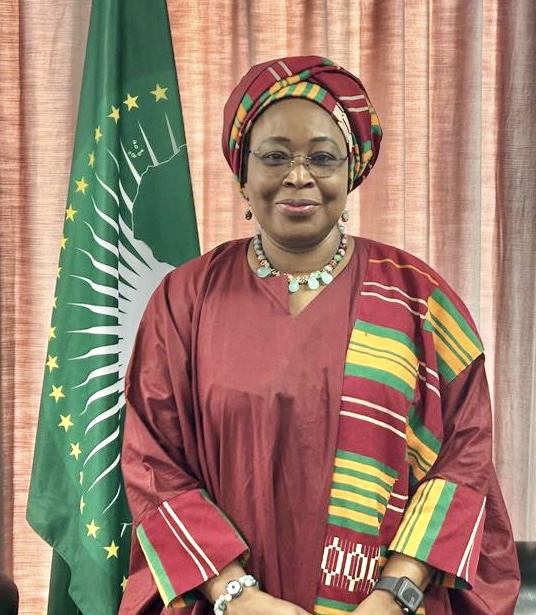Official Statement by H.E. Amb. Minata Samate Cessouma, Commissioner for Health, Humanitarian Affairs and Social Development of the African Union Commission on the Commemoration of the 2nd World Kiswahili Day,
Official Statement by H.E. Amb. Minata Samate Cessouma, Commissioner for Health, Humanitarian Affairs and Social Development of the African Union Commission on the Commemoration of the 2nd World Kiswahili Day,
It is my pleasure as the Commissioner for Health, Humanitarian Affairs and Social Development of the African Union Commission, to take part, in the celebration, of the 2nd edition of the World Kiswahili Day, today, July 7 2023 under the theme ‘’Unleashing Kiswahili’s Potential in the Digital Era”.
It must be remembered that the 41st session of the General Conference of UNESCO held in November 2021, adopted resolution 41 C/61 that recognised the role Kiswahili plays in promoting cultural diversity, creating awareness and fostering dialogue among civilisations. It also noted the need to promote multilingualism as an essential factor in harmonious communication between people, which promotes unity in diversity and international understanding, tolerance and dialogue. The resolution proclaimed July 7 as World Kiswahili Day.
In 2019, ACALAN in collaboration with the East Africa Kiswahili Commission (Kamisheniya Kiswahili Afrika Mashariki - KAKAMA), developed the Dar es Salam Framework for Action. In February 2022, the African Union Assembly on its 35th Ordinary Session adopted the Assembly Decision/AU/Dec796(XXXIV) to make Kiswahili a working language of the African Union and a language of wider communication in Africa.
I would like to emphasize that our languages’’ are the foundation on which our cultures and humanity are based, because they shape our identities. Therefore, there is a close relationship between language and social cohesion to enhance peace, integration and development.
The importance of language is beyond question. Language can facilitate or hinder the participation of citizens of a nation in their own development, consequently, linguistic barriers affects meaningful development.
Kiswahili is a Bantu language with terms drawn from Arabic and other Bantu languages spoken either as a mother tongue or, as a fluent second language mainly on the east coast of Africa, and has been the official language of the African Union alongside, Arabic, English, French and Portuguese. This was done as part of the political will and efforts of African leaders to enable Africa to use African languages in Africa’s development process. It is one of the most important milestones in the trajectory of Kiswahili.
Kiswahili is a powerful lingua franca promoting inclusion for a highly multilingual region of over 200 ethno-linguistic communities with a population of about 200 million people in the Burundi, Democratic Republic of Congo, Kenya, Rwanda, South Sudan, Uganda, United Republic of Tanzania and the African Diaspora, etc.
Kiswahili has evolved without traits or place for discriminatory representations that perpetuate inequality or exclusion, despite being the mother tongue of the WaSwahili.
More recently, the use of Kiswahili in the South African school curriculum lends credence to the great potential of the language to enable Africans to speak with one voice. Many countries already teach Kiswahili at different levels of their curriculum.
ACALAN, as the specialised language Institution of the African Union and entrusted with the task of developing and promoting African languages, has embarked on a programme promoting Kiswahili as a language of wider communication in Africa, alongside other regional languages such as Arabic, Hausa, Fulfulde, Mandinka, Setswana and Lingala among others.
The theme of this 2nd Edition, as mentioned above is relevant to the Language Plan of Action for Africa, as the blue print of the African Union’s language development programme. One of the objectives is to empower African Languages in the domain of Information and Communication Technology, by promoting their presence in cyberspace and applying Human Language Technologies. The Kiswahili corpus and cyberspace project is a component of this programme.
I would like to sincerely thank UNESCO on behalf of the African Union Commission, and the East African Community for complementing the African Union’s programme of empowering Kiswahili as a language of social cohesion, a consolidation of peace, security, democracy, commerce and trade, integration and development.
On this note, I wish you all a Happy World Kiswahili Day.
Asanteni Sana.












